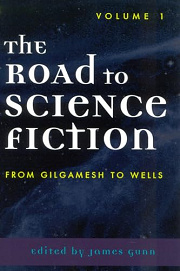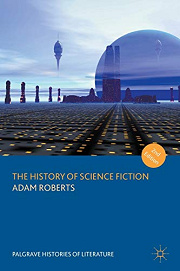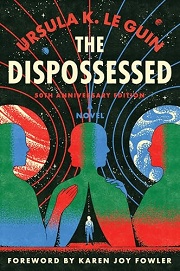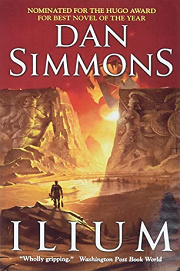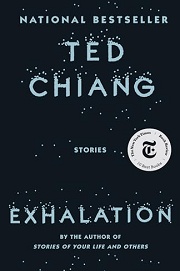Share your thoughts in a quick Shelf Talk!
The Road to Science Fiction: From Gilgamesh to Wells by James Gunn
Travel from ancient epics to early scientific romances in a curated journey through foundational texts. The Road to Science Fiction: From Gilgamesh to Wells reveals the roots of the genre’s bold ideas, offering readers a thoughtfully guided path to where SF began.
Have you read this book? Share what you liked (or didn’t), and we’ll use your answers to recommend your next favorite read!
Love The Road to Science Fiction: From Gilgamesh to Wells but not sure what to read next?
These picks are popular with readers who enjoyed this book. Complete a quick Shelf Talk to get recommendations made just for you! Warning: possible spoilers for The Road to Science Fiction: From Gilgamesh to Wells below.
In The Road to Science Fiction: From Gilgamesh to Wells, did you enjoy ...
... the centuries-spanning survey of speculative storytelling?
The History of Science Fiction by Adam Roberts
If you loved how The Road to Science Fiction: From Gilgamesh to Wells carries you from the flood tale of Gilgamesh and Utnapishtim through Swift’s Laputa, Shelley’s Frankenstein, Verne’s Captain Nemo, and Wells’s Time Traveller, Roberts gives you the big-picture throughline that connects them. He shows how utopias, voyages extraordinaires, and scientific romances evolve into modern SF—contextualizing those exact touchstones you encountered in Gunn’s selections.
... big-ideas speculation about society, ethics, and science?
The Dispossessed by Ursula K. Le Guin
Gunn’s anthology pairs social critique with speculation—from More’s rational designs in Utopia to Wells’s class parable in The Time Machine. If that blend hooked you, Le Guin’s The Dispossessed lets you walk with Shevek, a physicist whose pursuit of a unifying theory is inseparable from an anarchist society’s ideals and flaws. It’s the kind of rigorous thought experiment you tasted in those early utopias, but with modern depth and compassion.
... utopian thought experiments and social speculation?
Herland by Charlotte Perkins Gilman
If the excursions into imagined societies in Gunn’s volume—like More’s Utopia or the satirical detours of Swift—sparked your curiosity, Herland is a direct descendant. Three explorers stumble into an all-female society and, much like the travelers you met en route to Laputa or Erewhon, become foils for examining custom, gender, and reason. It’s sharp, premise-driven social SF in the tradition you just toured.
... mythic foundations feeding into later speculative fiction?
Ilium by Dan Simmons
Gunn begins with epic myth—The Epic of Gilgamesh—to show SF’s roots in legendary quests and larger-than-life figures. Ilium picks up that thread by colliding Homer’s heroes with far-future tech: Achilles and Odysseus reenact the Trojan War under the gaze of posthuman ‘gods’ on a Martian Olympus. If tracing Gilgamesh to Wells thrilled you, this myth-meets-science spectacle will feel like a bold, modern continuation of that lineage.
... idea-dense short works that challenge your assumptions?
Exhalation by Ted Chiang
Part of the fun in Gunn’s anthology is bouncing from Poe’s macabre speculation in “The Facts in the Case of M. Valdemar” to Wells’s parables like “The Country of the Blind,” each piece a new conceptual lens. Ted Chiang delivers that same concentrated hit of wonder and inquiry—stories like “Exhalation” and “The Lifecycle of Software Objects” probe mind, memory, time, and responsibility with the clarity and rigor you admired across those early masterworks.
Unlock your personalized book recommendations! Just take a quick Shelf Talk for The Road to Science Fiction: From Gilgamesh to Wells by James Gunn. It’s only a few questions and takes less than a minute.
